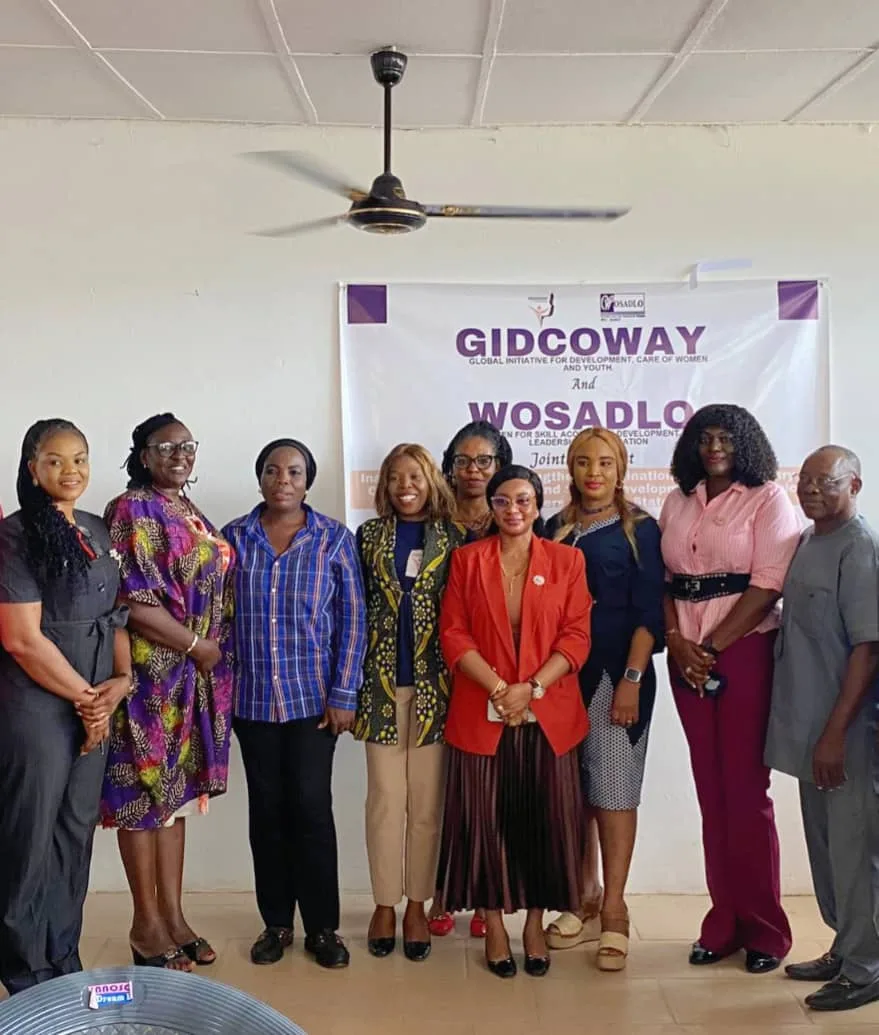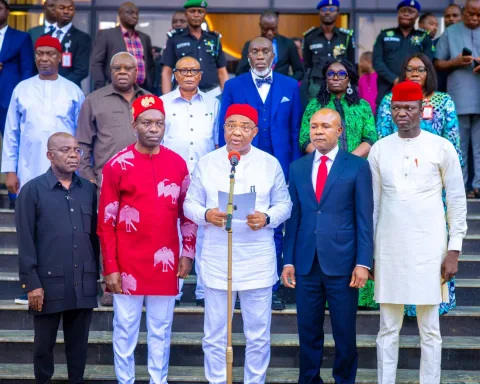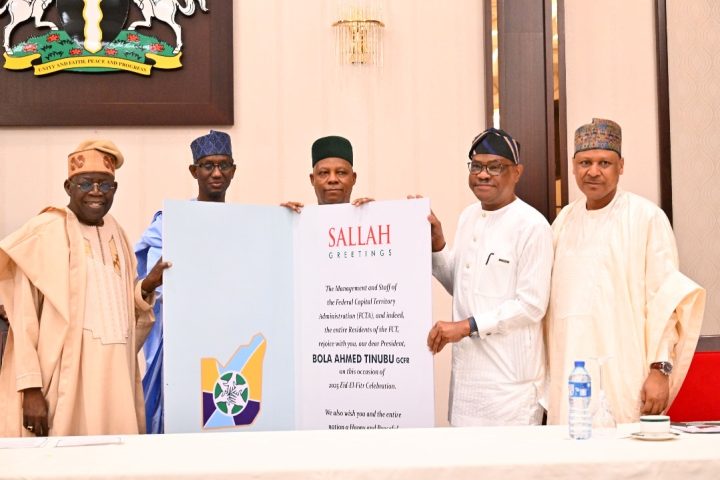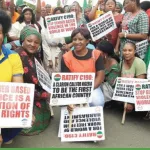Civil Society organisations (CSOs) in Enugu State have called for synergy in tackling cases of Gender-based Violence (GBV).
They made the call during inaugural meeting of CSOs organised by the Global Initiative for Development, Care of Women and Youths (GIDCOWAY) and Women for Skill Acquisition Development and Leadership Organisation (WOSADLO) with the aim of strengthening coordination of CSOs’ activities related to Gender-Based Violence (GBV) prevention in Enugu State.
Join our WhatsApp ChannelSupported by Saferworld and Women’s International League for Peace and Freedom, Nigeria (WILPF), the meeting focused on identify gaps in coordinating GBV prevention activities, improve data collection and analysis on GBV incidents, enhance communication between service providers and the Enugu State Ministry of Children, Gender and Social Development, and refine the state’s referral protocol pathway.
The meeting which brought together diverse CSO stakeholders, underscored a broader mission to develop an Enugu State Action Plan on Gender-based Violence Prevention.
Speaking during the meeting held recently at the Ministry of Gender Hall, Enugu, the state Commissioner for Children, Gender and Social Development, Ngozi Enih, explained the importance of data collection, stating that it helps the government in effective planing and policy implementation and also assists funders and international organisations in targeting their interventions.
Enih said a situation room is being put in place to facilitate data collation. She acknowledged that each state has unique cases and issues, and that accurate data collection will inform federal government policies.
“The situation room will enable effective data collection, informed decision-making, targeted interventions and Equitable distribution of resources.
Highlighting the importance of data collection, the Commissioner underscored the need for a structured approach to addressing GBV in Enugu State.
She expressed willingness to collaborate with NGOs, saying: “If there’s a woman somewhere who’s been beaten up by her husband and locked in a room, and you call us at 2 AM, be rest assured that we’ll be there by 2 AM.”
The Commissioner also emphasised the importance of passion in working as a GBV service provider or CSO
“To work in this field, you need passion not just funding or recognition,” she advised.
Also speaking at the meeting, the Executive Director of GIDCOWAY, Mrs. Ngozi Eboh, highlighted the need to identify gaps in coordinating activities related to GBV prevention in the state.
Mrs Eboh stressed that effective coordination among Civil Society Organisations (CSOs), law enforcement agencies, and other stakeholders is crucial in combating GBV.
She also pointed out that there are gaps in coordination among actors involved in GBV prevention, and stressed that CSOs, police, and other stakeholders need to work together to address GBV.
She advocated a collaborative approach, emphasizing that CSOs can support the Commissioner of Gender, Children women Affairs and Social development in fighting GBV in the state.
“We can support the Commissioner of Gender in bridging the gaps in fighting GBV if we can establish a channel of communication that makes it easier for her to know who is doing what and where the victims are located,” Eboh stated.
The GIDCOWAY executive director also hinted on the need to define the roles and responsibilities of each agency to ensure effective coordination.
Eboh further challenged CSOs to step up efforts in the collection of data on GBV victims, adding that it would help Ministry of Children and Gender Affairs in taking informed actions.
To address this challenge, she suggested that NGOs can help bridge the gap through a referral protocol as this would enhance data collection, establish a clear chain of connection between the Ministry, NGOs, Police and GBV service providers to facilitate coordination across the 17 local governments in Enugu State.
Mrs. Eboh emphasised that by implementing a referral protocol, the stakeholders aim to improve data collection, ensuring a more coordinated and effective response to GBV in the State.
Dr. Ebele Chukwu Onuorah, Executive Director of Adolescent Girls Initiative for Learning and Empowerment (AGILE), shared her concerns about the impact of lack of data on her project which aims to support young teenage girls who get pregnant to return to school. She said there is absence of data on maternity rates and girls who drop out of school due to pregnancy.
How Cultural Norms perpetuate GBV
Dr. Onuorah also expressed concerns about how cultural norms perpetuate GBV.
“In our culture, the girl child has no voice. She’s not meant to talk. It’s assumed that the girl child belongs to another family, while the boy child is allowed to live freely.”
She highlighted the consequences, saying: “Girl children are becoming more enlightened, wanting to go to school, but there’s no funding. They’re forced to do all manner of things to access education.”
Mr. Frank Akuma, one of the GBV prevention service providers, stated that GBV prevention service providers and CSOs should see themselves as playing complementary roles, not competitors and also recognize the need for more coordination meetings among stakeholders in the state.
He encouraged collaboration and unity among GBV prevention service providers and CSOs to effectively address GBV in Enugu State.
Victor Ezeja is a passionate journalist with six years of experience writing on economy, politics and energy. He holds a Masters degree in Mass Communication.



















Follow Us